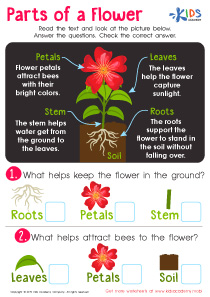Vocabulary expansion Easy Reading Fiction Worksheets for Ages 4-9
5 filtered results
-
From - To
Unlock the power of words with our "Vocabulary Expansion Easy Reading Fiction Worksheets" designed specifically for children aged 4-9! These engaging worksheets provide a fun and interactive way for young learners to enhance their vocabulary while immersing themselves in delightful stories. Each activity promotes reading comprehension and critical thinking, allowing kids to explore new words in context. Perfect for both home and classroom use, these worksheets encourage creativity and lifelong learning in a nurturing environment. Help your child develop a strong language foundation and a love for reading with our specially crafted resources that make learning enjoyable and effective!
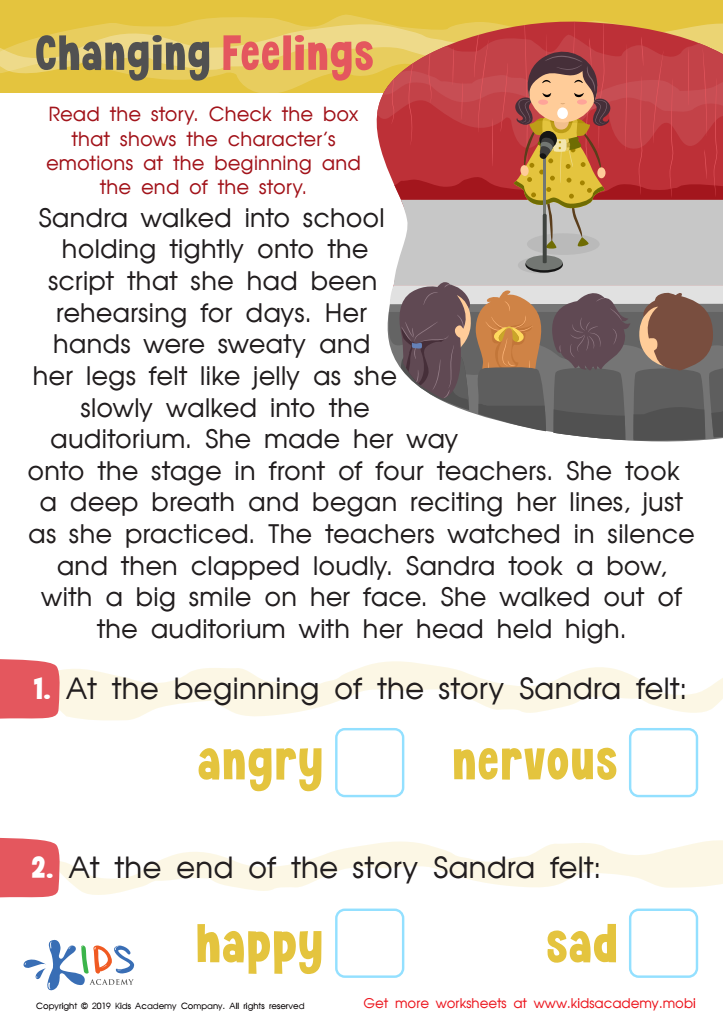

Changing Feelings Worksheet
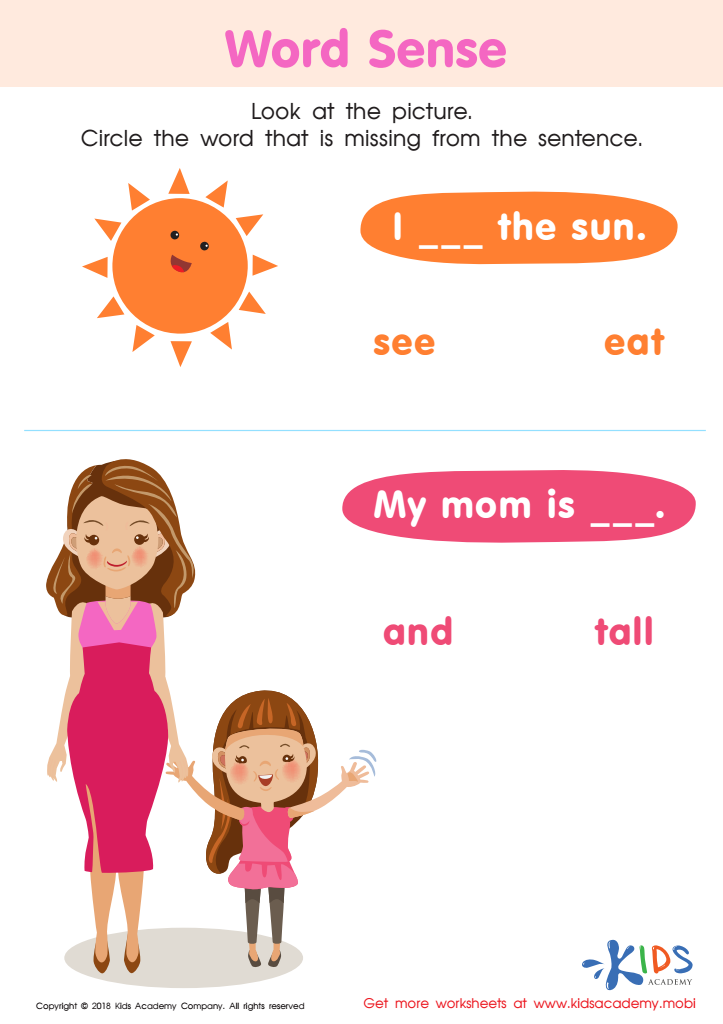

Word Sense Worksheet
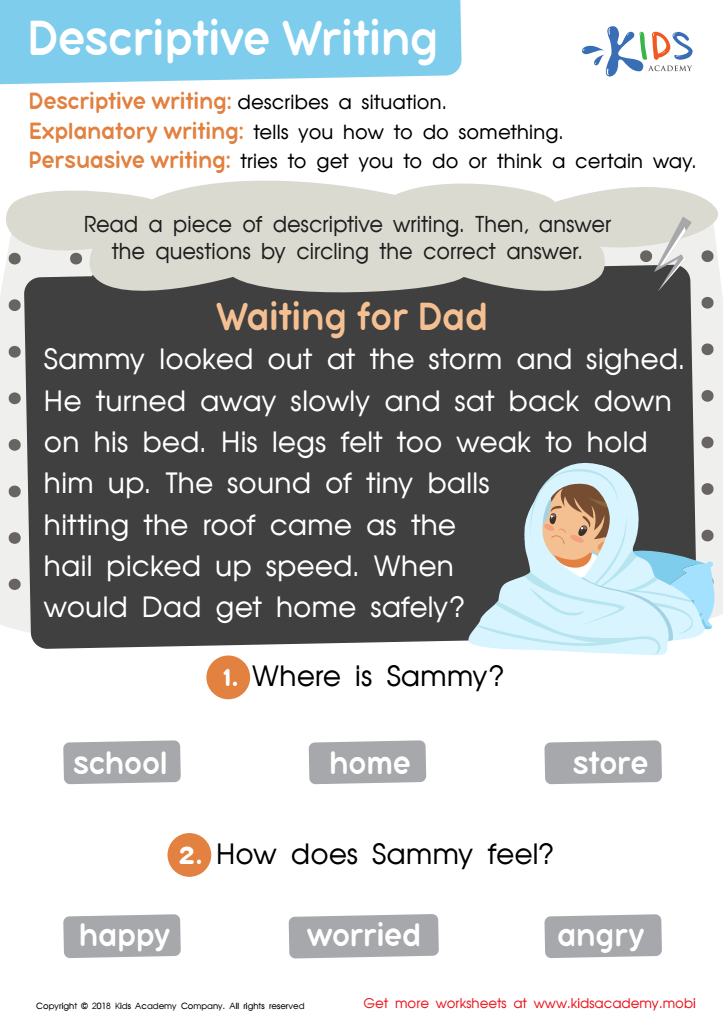

Descriptive Writing Worksheet: Part 2
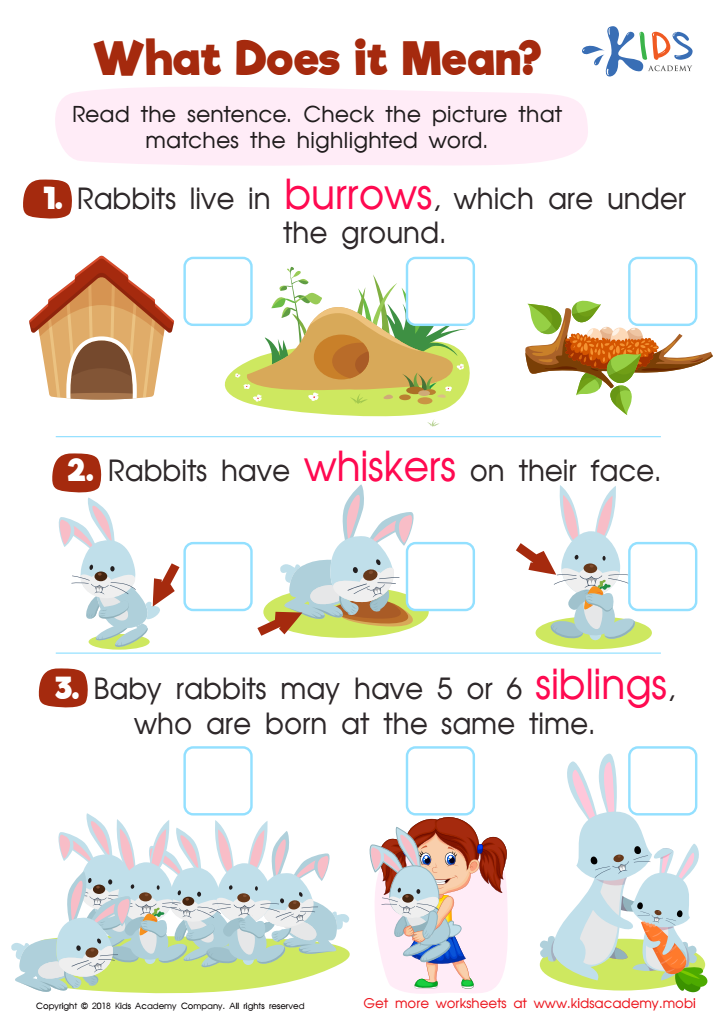

What Does It Mean? Worksheet
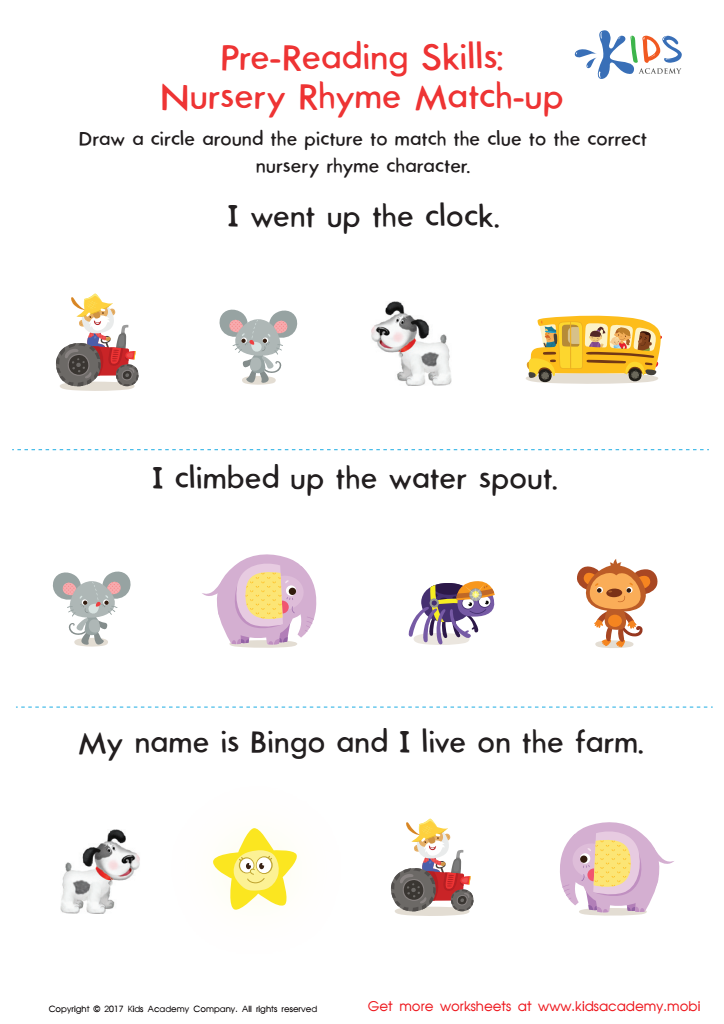

Nursery Rhyme Match–Up Worksheet
Vocabulary expansion through easy reading fiction for children aged 4-9 is essential for several reasons. Firstly, early exposure to rich vocabulary lays a strong foundation for language development. Books filled with diverse and engaging words help young learners grasp meanings and context, enhancing their overall communication skills.
Secondly, reading fiction fuels imagination and creativity, allowing children to explore new worlds and ideas. Engaging narratives make learning enjoyable, encouraging little ones to read more frequently and develop a lifelong love for literature. This love of reading promotes critical thinking, as children learn to analyze stories, understand perspectives, and relate to characters.
Moreover, improved vocabulary correlates with better academic performance, setting the stage for future success. Children who can articulate their thoughts clearly and comprehend diverse texts are more likely to excel in school, leading to higher self-esteem and confidence.
Lastly, vocabulary development nurtures social skills, as it equips children with the language needed to express their feelings and engage in conversations, fostering friendships and cooperation. Thus, parents and teachers should prioritize easy reading fiction, as it provides a playful and effective way to enrich children's vocabulary and empower their learning journey.

 Assign to My Students
Assign to My Students




.jpg)




